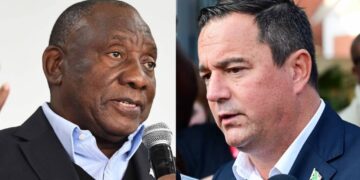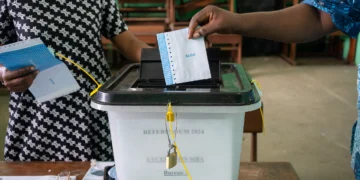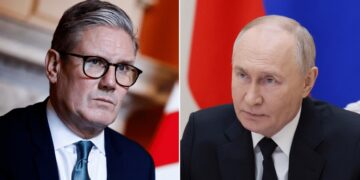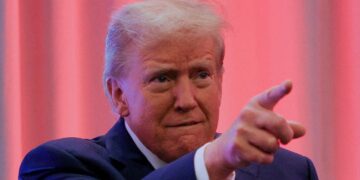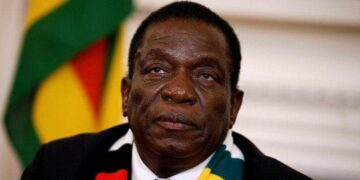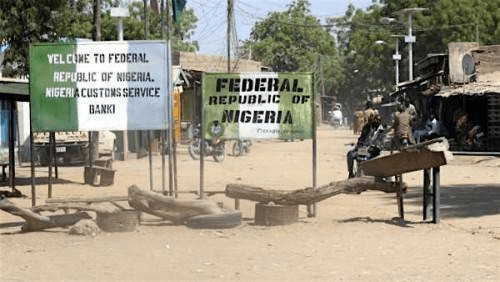By Chioma Iruke
The Executive Director, Africa Youth Growth Foundation (AYGF) Dr. Arome Salifu has called for a state of emergency on Nigeria’s borders, especially in Northern Nigeria, which he described as ‘borderless’.
Speaking with The Heritage Times in an interview, Dr. Salifu harped on Nigeria’s security, migration, corruption, social media ban, as well as the ongoing VAT war between the Federal Government and some State Governments.
See excerpts of the interview below:
How protected are the Nigerian borders against insurgency?
We don’t have borders in the northern parts of the country, Jibia as a case study has no security structure on ground manning the boarder. As a matter of fact, cars move freely through illegal routes without any restriction. In fact, security operatives are so powerless that they have to be afraid for their own lives. When we were there, we were warned to get there on time and leave the place on time because no one can guarantee your safety. In the night that place is good as empty and yet we are talking about securing the country. How can you fight insecurity when you can’t even secure your country, when you don’t even know what leaves your country and what comes in; it’s as good as saying that we have not even started.
How has the fight on illegal migration by your organization been?
Migration is one of our key components in terms of our activities, we are actually critical stakeholders in the sector. AYGF is a stakeholder in border management headed by the Nigerian Immigration Service and supported by NAPTIP. AYGF is also a member of stakeholders working group on Diaspora headed by the Diaspora Commission. AYGF is also a member of the working group of Return and Deliberation which is being headed by the National Commission for Refugee’s Migrants and IDPs, we are also a member of the stakeholders working group of Labour Migration headed by the Federal Ministry of Labour and Migration, we are also a member of the stakeholders working group on Migration Data headed by the National Population Commission and supported by the National Bureau of Statistics.
We have a project with the German Government called Migration and Information Communication Campaign aimed at educating Nigerians on the dangers of irregular migration in Nigeria. We have worked consecutively for two years, beginning with Edo state and Abuja, we have some documentaries, television and radio engagements, town hall meetings, debate, essay competitions for those in secondary and tertiary institutions. The project this year has been extended to Delta State.
We are not in support of irregular migration, we always want to support those who are leaving legally and with a valid reason, but not when you don’t prepare yourself. What we always tell you is that travelling/migration is not an offence, we are saying migrate with a certain level of preparation, organization, so you won’t be vulnerable to any form of exploitation, whether sexual or labour. We want people to migrate with their dignity and we want it to be known to everyone. In the United Sates, almost everyone there migrated and history has demonstrated that humans migrate, so we want people to contextualize their safety when they want to migrate.
The MICC is spread across Africa, we have in Ghana, South Africa and the likes and we wish to spread the message even to more African countries.
Should taxes be remitted to the State Governments?
The rules are clear and I don’t think the federal government has any business collecting tax, because Value Added Tax is something that is localized. I think it should be solved as quickly as possible.
When we talk about no guarantee that the state would use it effectively, we should also know that there is no guarantee that the federal government would use it effectively, because the corruption that affects states also affects the federal government.
I think the VAT being handed over to states would be a big lesson that it isn’t about having a huge population, it’s also about transiting your population to revenue. Every state was created because of their economic viability. You have no business being a state if you are not economically viable. If you can’t be financially, economically viable, you shouldn’t also be politically viable, because the economics has to support the politics and that’s the reality.
How would you rate the corruption war in this administration?
It is difficult to respond to this because corruption index has presented Nigeria as not doing any better in anti-corruption fight, but the EFCC Chairman seems to be effective. He should be allowed time to see if he could do better, but for me the country isn’t doing any better in terms of anti-corruption fight in general because we still see corruption happening in various government agencies. We can’t pretend like we are not seeing this if we want to see things change, as corruption has expandeed into violent extremism, kidnappings, insurgency and all.
What are some of the programmes/steps being taken by your organization to prepare the youths for the 2023 national elections?
We are not affiliated to any political party but of course part of our objectives is to bring, support, innovate and engineer about good governance, particularly amongst young people and the only way to do that is by pushing the minds of young people to participate in governance by mentoring and tutoring, which we have been doing over the years and that we are ready to do in the 2023 general elections. We want them to be good leaders and good followers at the same time, because not all young people can lead, but those with the capacity to lead should be encouraged and developed. We are pushing the narrative that this country belongs to us all, don’t leave it to those whom we believe have the traditional right to lead, but that you have the same right to lead ,but of course you have to prepare and demonstrate capacity, competence and character.
Thus, we would want to see that as many young people as possible have their voters card, be in a political party, are active and participate in the activities of these political parties and that they express their interest to lead by participating in their elections and that they can campaign vigorously to win elections, as well as provide meaningful constructive good governance for the people.
Would you say youth leaders are deterrent to other youths
Political aspiration and capacity to lead is relative and not peculiar to just young people, leading is not an exclusive preserve of young people, it’s something that anyone could do if the person is equipped enough in terms of character, capacity and competence. You need to know what their orientations are, is it about making money for themselves and their families, or does the person have the competence in terms of qualification and experience. Of course, even as young persons, you must have demonstrated leadership and those are training grounds which we try to identify and see how we can push them to also provide better leadership for the larger society. The fact that a young person contested and failed to provide good governance does not mean that another young person cannot provide good leadership, which was why I said its relative. The best thing is to build the orientation and capacity of these young people to be able to surmount the challenges in terms of leadership because we have to look at the nuances of our political environment, the challenges out there is such that as a politician people expect you to have all the money to spend as against people donating to support you which is what we have in other climes. As long as this narrative stands, we won’t get it right because as long as people are left to invest their own money and win elections, people would only see it as a business where you have to put in much and pull out much.
Has your 2019 stance on this administration deliberately keeping the youths in poverty changed?
I have always been an advocate of youth empowerment and over the years, the government has tried to see that they privatize the reduction of youth poverty, particularly with intervention of CBN through the anchor borrowers programme, by the Federal Ministry of Youths and Sports through the N75bn dedicated for empowerment through the SMEDAN and COVID-19 Relief Fund. Our concerns have always been how effective has the utilization been, because often time people get to short change the system by cutting corners and allowing sentiments like tribalism and religious ethnocentric frivolities to take center stage, as against getting the right people by merit. So when that is allowed, it undermines the objectives and the results are not attained. There is much to be done on this youth poverty, the statistics are not favorable, dollar is skyrocketing and it’s affecting entrepreneurs, especially those who import raw materials.







